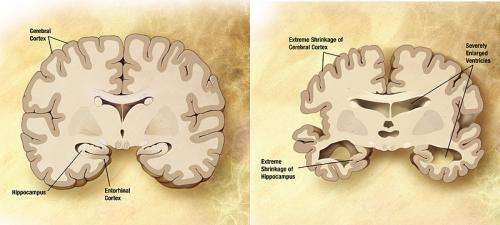
Mayo Clinic researchers have defined a form of Alzheimer’s disease that strikes younger people as early as their 40s, presents with atypical symptoms, and affects a different part of the brain not usually associated with Alzheimer’s. In their study, the researchers describe a progressive dysexecutive syndrome which they say affects a person’s ability to multitask, organize and plan to a greater degree than the episodic memory deficits seen in typical Alzheimer’s disease. Although this form of Alzheimer’s is not new, it has not been defined or studied to a significant degree, contributing to misdiagnosis and delays in diagnosis. The paper was published in Brain Communications.
…


























